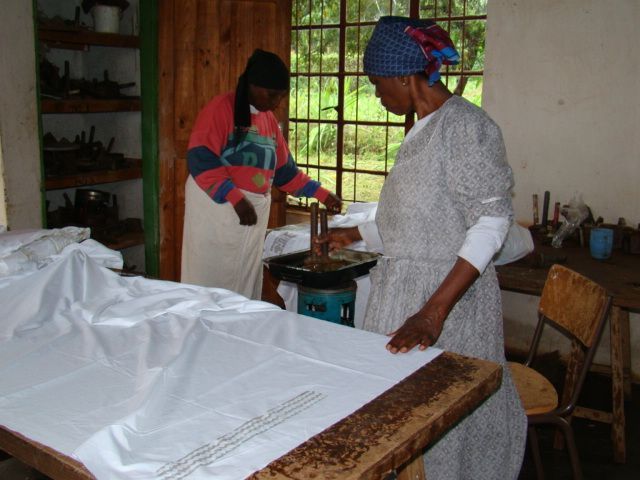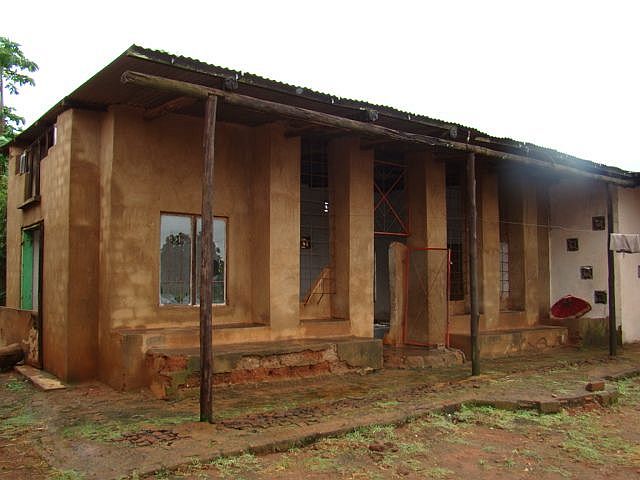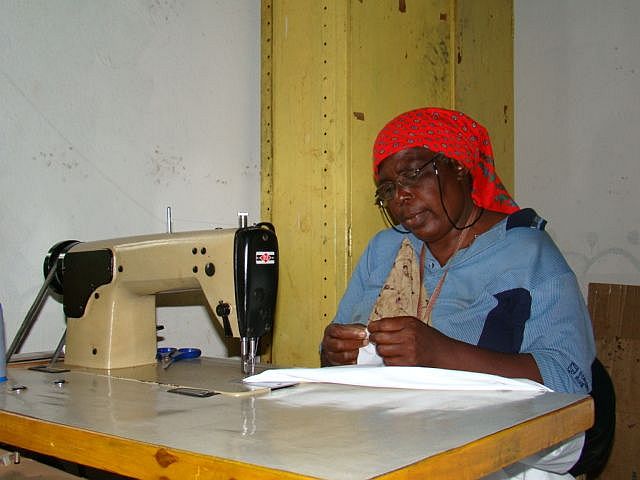In villages around Limpopo Province, it is the women who decorate the homes with traditional and borrowed symbols, integrated into wall paintings, using colour oxides, and lime and battery acid and mud mixtures.
In 1983, 23 women from Mbokota Village, former Tsonga/Shangaan Homeland known as Gazankulu, got together to develop a simple textile process incorporating these patterns into fabric designs. Tlakeni Textiles Co-operative members who offered space for initial training in their workshop also supported the project. Later, the co-operative assisted women in gaining business skills and developing a co-operative structure.
Initially, production was organised by members from four homesteads in the village during 1984/5, with sales figures building up to an average of R3 000 per month, which covered payment within the group and costs of raw materials. Then, with assistance from a service organisation (ITSUDU), Twananani raised funds for building a workshop in the village.
Currently Twananani has 24 women producing batik-type cloths which are dyed and sewn up into garments, or just sold as n’chekas (traditional Tsonga/Shangaan sarongs). Twananani – Bring African ethnicity into your home! Different Tsonga/Shangaan Traditional motifs are applied onto a variety of textile products. The character of Africa is indelibly stamped onto the products using a block printing technique.
A range of cushions, handbags and interior products, hand stitched and block printed are some of the attractive products available.
Gazankulu’s brief history:
Gazankulu, was represented by four pieces of land set aside for the Tsonga/Shangaan people and it had a population of approximately 600 000 during the 1970’s, and was one of the four non-independent states during the apartheid era. Of the economically active men, some 70% were migrant workers who, in order to provide some income, had little option but to leave their families and join labour pools that serviced South Africa’s mining, industrial and commercial centres.
The majority of women, children and aged were left to maintain the rural settlements, which were overcrowded, lacking in basic services, and situated on land depleted of natural resources and long over-utilised agriculturally.
Against this background, rural women had repeatedly expressed the need to earn money merely in order to feed, clothe and educate their own and extended families.
“We want to work, we want to help with the money. By working together, we can help each other.” And this was the women’s slogan and their feeling during those hard years in their lives under apartheid.
*This participant is a member of the Africa Craft Trust.



